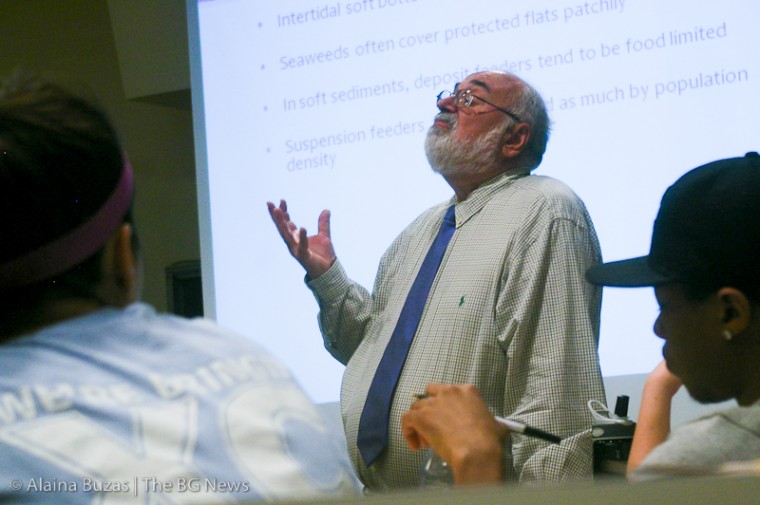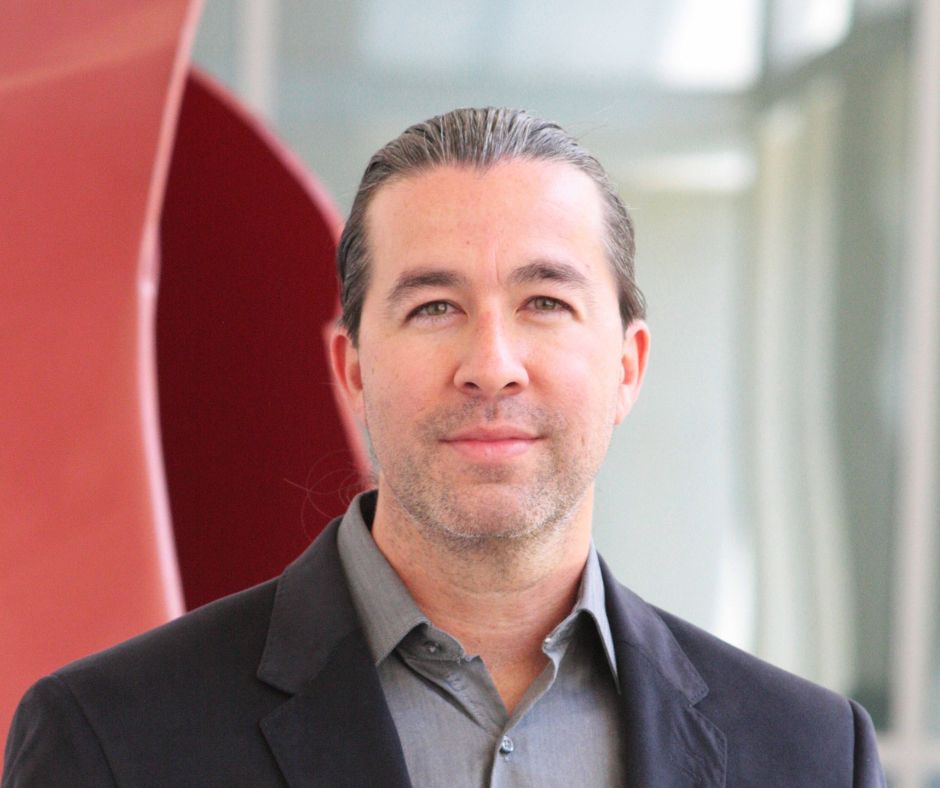Editor’s note: Of the 834 eligible classified staff, administrative staff and faculty, 149 employees have chosen to leave the University with the Employee Separation Program. All except eight of the 38 faculty, 33 administrative staff and 78 classified, or hourly, employees will leave by June 30. This is the second part of a three-part series looking at areas affected by the program.
Thirty-six days. That’s the number flashing red on Roger Thibault’s computer screen on the first floor of the Life Sciences Building.
It’s the number of days until he’s free from the University, free to retire May 7 from his job as associate professor of biology.
“But am I counting?” he said, jokingly.
Even though Thibault can’t wait to leave, he said he will dearly miss his students.
“I always miss working with students. I won’t miss this beautiful, spacious office,” he said, waving his arms to exaggerate the size of his office, big enough to contain a desk, chair and hefty desktop computer. “It’s a little small.”
Just like many students, Thibault has a countdown to the Friday of finals week, but his excitement comes from taking the University’s Employee Separation Program, which allows faculty and staff with 15 or more years of service to voluntarily leave in exchange for a portion of their base salary to be paid out over a set period of time.
The University expects to save $5 million in a three to five year span after 149 employees signed up.
Thibault joins 37 other faculty who have decided to leave the University, which has gone into “emergency cost savings mode,” as he puts it. Thibault is happy to be leaving the “pessimism and extreme negativism” behind to spend time in Florida with his wife and use the $65,000 plus sick pay he gets for leaving campus after 35 years.
He is concerned the University will not replace the void left by the program or take care of its faculty.
“I don’t think that the University really values its employees,” Thibault said. “So I worry.”
But all faculty tenure tract lines will be replaced in the next two to three years, said Ken Borland, senior vice president for Academic Affairs and provost. He said the University is waiting on requests from deans to determine what positions will be filled and when.
The proposals, which are also being determined for classified and administrative staff, should be completed sometime this month, when temporary employees can be chosen for the fall.
“We fully expect they will all be requests to fill them temporarily for the next year because we don’t have time to conduct a … good, quality national search to have someone start in the fall,” Borland said.
He said he wants to fill open positions with equally capable faculty who have the desire to succeed and complete the entirety of their career with the University. And even though many faculty have volunteered to leave, tenured faculty are still what the University wants to have, Borland said.
Only a couple of the faculty members who took the program are nontenure tract, said Rebecca Ferguson, chief human resources officer.
Ron Lancaster, graduate coordinator and professor in computer science, got the impression if not enough faculty took advantage of the program, the University may have to turn to layoffs or unpaid furloughs to pick up savings, so he decided he would help out.
At 63, Lancaster is ready to retire to the Detroit area after teaching for 38 years. He’s looking forward to spending more time volunteering at the United Way doing taxes for low-income families and planning trips to go on with family and friends.
“The University is in a bind, and I can appreciate that,” said Lancaster, whose last day is May 30. “For the big picture, it looked like the best thing to do.”
Lancaster said the program gives the University an opportunity to realign its many parts, which is positive. Bringing in new faculty with fresh ideas and enthusiasm sounds like a win-win to him.
“It would be a much greater tragedy if we had senior faculty like myself staying on and on forever and the University was forced to lay off some very interesting faculty,” said Donald McQuarie, director and professor of American Culture Studies. “I would feel pretty awful if I knew some of my colleagues were getting laid off and I wasn’t taking advantage of this so I could stay another year or two.”
McQuarie said he was planning to retire in the next year or two anyway, so this program just accelerated that date to June 30. While finishing up graduate student recruitment and other projects before that time, he daydreams of the retirement he’ll spend hiking, mountain climbing out West and bicycling.
McQuarie has no regrets about choosing to leave, even though he’ll miss everything about his job.
“I think most people feel like me; they really appreciate working for the University all these years,” he said. “I feel a sense of gratitude.”
Ferguson said the University returns that gratitude, knowing it has staff that will openly admit, “You know, I could go. Therefore, let me see if I can’t depart so maybe somebody behind me doesn’t lose their job.'”
Her fingers are crossed that the program’s savings will make layoffs and furloughs a thing of the past. Human Resources is going to track every dollar tied to these positions to ensure the University will reach its savings goals.
“Ultimately, we really do know we are going to save money because we wouldn’t have done it otherwise,” Ferguson said.
Even with the chaos and changes the program may bring, Borland stressed the University’s commitment to providing students with the ultimate academic experience. Adjustments will bolster the student experience and better the University as a whole, he said.
“Our first priorities are the educational needs of students,” he said. “Our goal is to have every bit or better opportunities for students in the way of quality of service and education here.”























